Published by the International Institute for Sustainable Development
(IISD)
Vol. 12 No. 82
Tuesday, June 09 1998
HIGHLIGHTS FROM THE MEETINGS OF THE FCCC SUBSIDIARY BODIES
8 JUNE 1998
The Subsidiary Body for Implementation (SBI) met to discuss arrangements for
intergovernmental meetings, adverse impacts, national communications and NGO involvement.
A joint SBI/SBSTA meeting convened in the afternoon to hear and discuss a report from the
cooperative mechanisms contact group. The Ad Hoc Group on Article 13 (AG13) continued
discussions on the Multilateral Consultative Process (MCP) in morning and afternoon
sessions.
SBI/SBSTA JOINT SESSION
A joint SBI/SBSTA session considered work on cooperative mechanisms. Contact group
Co-Chair Ivo de Boer (Netherlands) reported that the group had met three times to:
identify issues related to the mechanisms; consider a work programme; and suggest
decisions. The group mandated a Co-Chairs' paper, submitted as a proposed schedule of
work.
The G-77/CHINA, supported by the PHILIPPINES, SAUDI ARABIA and CHINA, called upon SBSTA
to clarify methodological issues before substantive issues are discussed. He also: noted,
with CHINA, the G-77/CHINA's current consideration of this item; called for consideration
of rules, guidelines and modalities and other relevant issues; and, with the PHILIPPINES,
opposed establishing another contact group on similar issues. The Chair stated that the
two groups' work should be harmonized.
The EU introduced a proposal on international emissions trading, noting differences to
the Canadian proposal in addressing: supplementarity; environmental effectiveness,
compliance mechanisms, market transparency, risk and liability rules, reporting
requirements, and eligibility.
SUBSIDIARY BODY FOR IMPLEMENTATION
The Chair invited continued discussion on arrangements for intergovernmental meetings,
including arrangements for COP-4 and the calendar of meetings. He noted a General Assembly
(GA) resolution asking conferences to avoid collisions with GA meetings. After discussion,
the Secretariat noted governments will have to decide how to address this. On COP-4's
provisional agenda, the US said an item on voluntary commitments by non-Annex I Parties
should be retained. The G-77/CHINA, supported by BRAZIL, SAUDI ARABIA and BURKINA FASO,
said there was no group support for an item on voluntary commitments and, with
CHINA,called for transparency in drafting high-level statements. JAPAN and CANADA
supported the item on voluntary commitments for non-Annex I Parties. JAPAN noted a
prospective proposal on incentives. 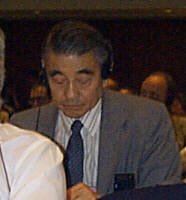 CHINA,
with SAUDI ARABIA and BURKINA FASO, said this item could lead to renewed confrontation.
The EU called for a prioritized work program for Protocol activities. A number of
outstanding questions remain, such as on implementation of commitments other than those in
FCCC Article 4.2. The Chair will undertake informal consultations toward a draft
conclusion and decision. CHINA,
with SAUDI ARABIA and BURKINA FASO, said this item could lead to renewed confrontation.
The EU called for a prioritized work program for Protocol activities. A number of
outstanding questions remain, such as on implementation of commitments other than those in
FCCC Article 4.2. The Chair will undertake informal consultations toward a draft
conclusion and decision.
On implementation of FCCC Articles 4.8 and 4.9 with Decision 3/CP.3 and Protocol
Articles 2.3 and 3.14, ZIMBABWE, for the G-77/CHINA, supported by SAUDI ARABIA, CHINA, 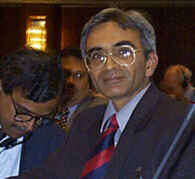 INDIA,
VENEZUELA and ETHIOPIA, called on the SBI to identify the needs of developing countries,
requesting information from SBSTA and the IPCC. She called for a contact group to prepare
a draft decision. She proposed that the item be taken up at all future COPs and proposed
establishing a joint SBI/SBSTA working group. The EU welcomed the Secretariat's document
(FCCC/SBI/1998/CRP.1) and noted the need for further analysis. On the paper's analytical
framework for Articles 4.8 and 4.9, he said there was an overstatement of the certainty of
information on adaptation. Possible actions were not restricted to funding, insurance and
technology transfer. The SBI would not reach definitive conclusions by COP-4, which could
initiate work by SBSTA. The INDIA,
VENEZUELA and ETHIOPIA, called on the SBI to identify the needs of developing countries,
requesting information from SBSTA and the IPCC. She called for a contact group to prepare
a draft decision. She proposed that the item be taken up at all future COPs and proposed
establishing a joint SBI/SBSTA working group. The EU welcomed the Secretariat's document
(FCCC/SBI/1998/CRP.1) and noted the need for further analysis. On the paper's analytical
framework for Articles 4.8 and 4.9, he said there was an overstatement of the certainty of
information on adaptation. Possible actions were not restricted to funding, insurance and
technology transfer. The SBI would not reach definitive conclusions by COP-4, which could
initiate work by SBSTA. The  US
anticipated dramatic improvements in the state of knowledge concerning adaptation in the
years ahead. He noted that the FCCC contains no provision similar to Article 4.4 obliging
Annex I or Annex II Parties to compensate countries that could be affected by response
measures. Any such obligation could have created a perverse disincentive to reduce GHGs.
Instead, FCCC Article 4.8, on response measures, implies that, if possible, Parties should
implement commitments while avoiding or minimizing impacts on developing country Parties.
He noted the relevance of Protocol Article 2.3. US
anticipated dramatic improvements in the state of knowledge concerning adaptation in the
years ahead. He noted that the FCCC contains no provision similar to Article 4.4 obliging
Annex I or Annex II Parties to compensate countries that could be affected by response
measures. Any such obligation could have created a perverse disincentive to reduce GHGs.
Instead, FCCC Article 4.8, on response measures, implies that, if possible, Parties should
implement commitments while avoiding or minimizing impacts on developing country Parties.
He noted the relevance of Protocol Article 2.3.
 US declaration available in
RealAudio US declaration available in
RealAudio
Regarding a call for Annex I Parties to submit information on potential impacts of
policies and measures (P&Ms), he suggested that those whose own interests are at stake
are better situated to identify impacts. In the absence of examples, he said it was
premature to consider establishing a new subsidiary body. He said the possible impacts of
response measures would be best raised individually by affected Parties. There could be no
compensation for alleged adverse affects from implementation of Article 4 commitments. On
adverse effects of climate change, and supported by CANADA and AUSTRALIA, he advocated
starting with each Party's own assessment of its vulnerability in initial national
communications. CANADA undertook to provide adaptation technology through the CDM.
AUSTRALIA favored more work on the Secretariat's proposed analytical framework and
anticipated working through the CDM. SAUDI ARABIA said complexity in other issues areas
had not been given as a reason for deferring work. He expressed surprise at innovative
interpretations of Articles 4.8 and 4.9 and the Protocol provisions. NORWAY supported
CANADA and AUSTRALIA and underlined the importance of cost effective implementation.
ZIMBABWE clarified that the G-77's proposal calls for an ad hoc working group to meet
during the COP.
CHINA called for action on funding and technology transfer, noting these are not to be
limited to the CDM. Responding to a US request for clarification on contradictions in
P&Ms, SAUDI ARABIA, supported by VENEZUELA, noted GHG-intensive energy subsidies and
taxes, and commitments to reduce petroleum use alongside increasing domestic production.
GEORGIA noted the readiness of many non-Annex I countries to take on voluntary commitments
on GHGs, with adequate support under Article 4 within the framework of CDM. A contact
group Co-Chaired by Tibor Faragó (Hungary) and Salamat Mohmad Salamat (Iran) will discuss
the G-77/China's draft decision.
The US called for constructive dialogue on the flexibility mechanisms and noted the
similarities between the UK and Canadian papers on emissions trading. The RUSSIAN
FEDERATION said differences in group positions on trading could be narrowed. JAPAN
suggested that the contact group reconvene in light of G-77/China's willingness to engage.
CANADA said a prompt decision on the mechanisms was critical for encouraging: ratification
of the Protocol; early reductions; and reduced cost. On the EU and Canadian papers, he
noted commonality on reporting, monitoring and verification. The PHILIPPINES asked for
clarification about the role of the contact group and, with INDONESIA, expressed concern
about the ability of small delegations to participate in contact groups. The Co-Chair drew
attention to a Secretariat paper on organization of work (FCCC/SBI/1998/1). He said all
that was required was an endorsement of proposals on which subsidiary body was to deal
with which issue. The 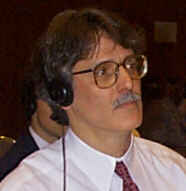 CENTRE
FOR INTERNATIONAL ENVIRONMENTAL LAW (CIEL) said there were issues regarding the
mechanisms of grave concern to the environmental community. CIEL did not envisage that
emissions trading would be used to evade responsibilities or weaken commitments. He
offered sets of principles for the operation of the mechanisms. CENTRE
FOR INTERNATIONAL ENVIRONMENTAL LAW (CIEL) said there were issues regarding the
mechanisms of grave concern to the environmental community. CIEL did not envisage that
emissions trading would be used to evade responsibilities or weaken commitments. He
offered sets of principles for the operation of the mechanisms.
 RealAudio of CIEL's presentation
to the Joint Session RealAudio of CIEL's presentation
to the Joint Session
The SBI considered a draft conclusion on national communications from Annex I Parties
(FCCC/SBI/1998/CRP.2). An EU proposal for a draft COP-4 decision on revised guidelines was
not supported. A SWISS proposal not to limit submission of Parties' views to "the
scheduling of" subsequent communications was accepted.
On a draft conclusion on involvement of NGOs (FCCC/SBI/1998/CRP.3), the US, supported
by SAUDI ARABIA and VENEZUELA, the EU, and CHINA, deleted a request for additional
information on the objectives of NGOs. The EU supported existing arrangements accrediting
three NGO constituencies. SAUDI ARABIA, supported by CHINA and VENEZUELA, proposed that
"Parties" rather than "Chairmen" agree on NGO participation in
informal contact groups. Delegates accepted a US compromise allowing participation unless
the group objects.
AD HOC GROUP ON ARTICLE 13
AG13 continued deliberating Paragraph 13 (outcome), specifically questions on the
reporting of the Committee, access to the reports of the work of the Committee, and
whether reports should be subject to consent of Parties concerned.
The US and G-77/CHINA questioned the need to link paragraph 11 (governance) and 13
(outcomes), since they address two distinct issues: general reporting of the Committee's
overall work and reporting of the outcomes of that work. On reporting of the Committee's
work, the US queried the frequency, form and content of reports to the COP. The G-77/CHINA
and the  EU
suggested annexing a summary of conclusions and recommendations to full reports. The
reports would be submitted at the ordinary sessions of the COP. EU
suggested annexing a summary of conclusions and recommendations to full reports. The
reports would be submitted at the ordinary sessions of the COP.
On the G-77/CHINA suggestion to make the reports, conclusions and recommendations
available to the public upon request, IRAN and the US noted the Secretariat's existing
dissemination procedures. 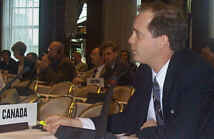 CANADA
called for cross-reference to paragraph 5 (mandate of the Committee) and avoid use of
language that expands or confuses the mandate of Committee. On consent by Parties, the
G-77/CHINA noted the importance of doing so especially in situations where the concerned
Parties did not trigger the process, saying this is necessary for fairness and appropriate
acceptance of the conclusions. CANADA
called for cross-reference to paragraph 5 (mandate of the Committee) and avoid use of
language that expands or confuses the mandate of Committee. On consent by Parties, the
G-77/CHINA noted the importance of doing so especially in situations where the concerned
Parties did not trigger the process, saying this is necessary for fairness and appropriate
acceptance of the conclusions.
The G-77/CHINA also proposed noting that the outcome of the Committee's work shall
include, as necessary, measures for the effective implementation of the Convention. CANADA
and the US said the G-77/China proposal changes the scope of the process, by referring to
the entire Convention rather than the Parties in question. 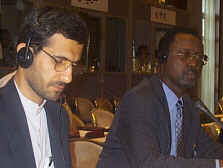 GHANA
said comments from the MCP participants should be included in the report to the COP. The
EU said the comments should be included if they diverge from the outcome of the process. GHANA
said comments from the MCP participants should be included in the report to the COP. The
EU said the comments should be included if they diverge from the outcome of the process.
On paragraph 14 (evolution), delegates accepted text noting that these terms of
reference may be amended by the Conference of the Parties. The Chair proposed that
unresolved problems should be resolved in a drafting group.
CANADA, Chair of the drafting group, reported that Parties had agreed the MCP can be
triggered by: a Party with respect to its own implementation; a group of Parties with
respect to their own implementation; a Party or group of Parties with respect to
implementation by another Party or group of Parties; and/or the Conference of Parties. On
paragraph 13 (outcome), language was included that allows for concerned Parties' comments
on the conclusions and recommendations to be forwarded with the report to the COP. The
group agreed to defer decisions on the size and representation of the Committee to the
final AG13 sessions, to allow further consultations. At the end of the session the
delegates received a revised draft text.
IN THE CORRIDORS
Industry lobbyists are looking for clearer indications from the Parties as to their
expected role under Article 17 on emissions trading. Some have pointed out that, until
now, the private sector's role has been assumed but far from assured. The spectrum of
interests and positions within the industry lobby converge around the general concern that
maximum flexibility be built into the flexibility mechanisms so that the free market can
"get on with it." "There's the Protocol and there's real life,"
commented one observer on the key role of the markets. There is some skepticism about the
level of capping flagged by the EU.
IN THE CORRIDORS II
Some delegates voiced concern about the contact groups' progress or the lack thereof.
On flexibility mechanisms, details from developing country delegates on a G-77/China
position were sparse and frequently far from optimistic. Some were dismayed that emissions
trading discussions are overshadowing those on the CDM. Others feared that discussions on
the CDM would not address all developing countries equally. Still others cautioned that
contact groups designated last week have not yet met, while new groups may proliferate.
THINGS TO LOOK FOR
SBI: SBI will meet at 12:00 am in the Maritim Room.
AG13: AG13 will meet at 10:00 am in the Beethoven Room.
Article 6 Workshop : This group will meet at 1:00 pm in the Haydn Room.
Reception: Launch of "Rising Voices Against Global Warming", a book by Azza
Taalab, with keynote speaker, Michael Zammit-Cutajar, at from 6:30-8:30 pm in the Maritim
Piano Bar. |

 CHINA
CHINA INDIA
INDIA US
US US declaration available in
RealAudio
US declaration available in
RealAudio CENTRE
FOR INTERNATIONAL ENVIRONMENTAL LAW
CENTRE
FOR INTERNATIONAL ENVIRONMENTAL LAW EU
EU CANADA
CANADA GHANA
GHANA